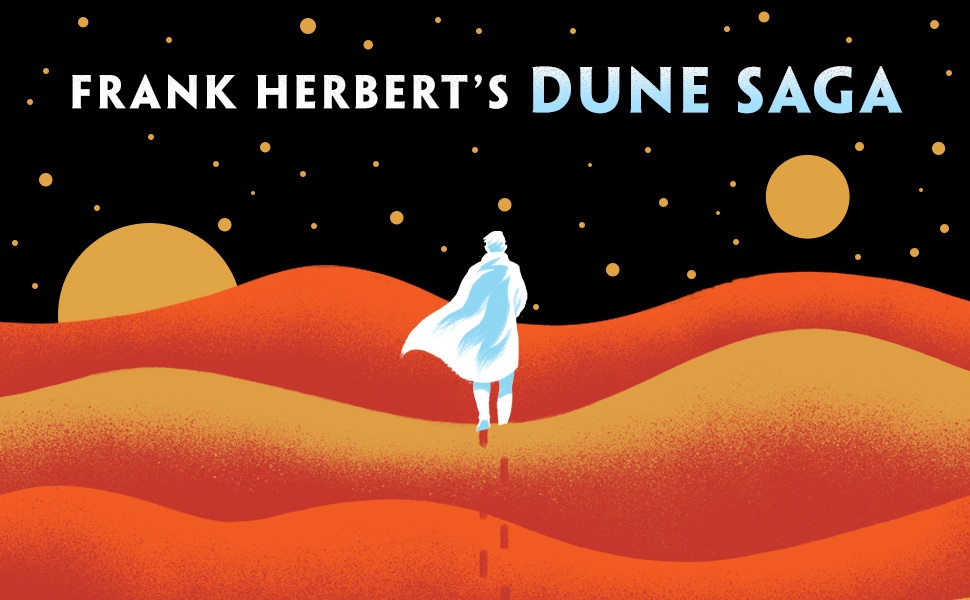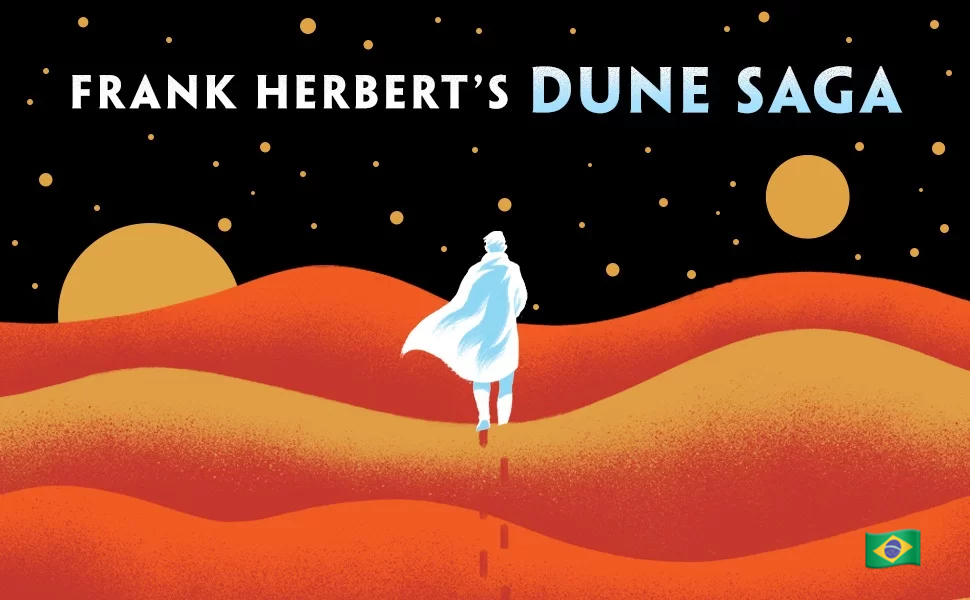Did Dune Part 2 left you craving for more?
With stunning visuals, sound design by Hans Zimmer and star-studded cast members like Timothée Chalamet, Zendaya Coleman and Austin Butler, Denis Villeneuve’s Dune: Part 2 landed on the big screen on March 1 – and it was movie to watch of the moment, whether you’re a sci-fi fanatic or not.
For the unfamiliar, the Dune series (Dune: Part 1 and this last second half) is based on the first book of the original science fiction Dune story (1965) The original series of Written by Frank Herbert spread over six volumes, which he edited in 1986 before his death.
Now, there are 23 books to sink your teeth into. If the film has inspired you to delve deeper into the world of Dune, but you’re not sure where to start, there are a few ways you can deal with it – and we’re here to help. First, you can read the books in order of publication, or you can take them in chronological order. And, of course, you can also just read the first book and stand there, if you want.
Here’s a look at where to buy the first six novels on chronological order of publication.
Dune

The first book in the Dune series was published in August 1965, introducing us to the inhospitable desert planet of Arrakis. Here rival factions compete for the valuable, psychotropic substance called “spice” – created by giant sandworm larvaes, this coveted substance can extend human life and to raise his awareness of this original science fiction book on religion, technology and our relationship with our environment Look forward to seeing.
Dune Messiah

The second volume of the Herbert Dune saga, Dune Messiah, was published in 1969. After a conflict in the first volume, House Harkonnen is defeated by Paul Atreides – now nicknamed Muad’Dib – is the most powerful but still threatening emperor of the planet Arrakis with dethronement as chaos sweeps through the universe It must lead humanity and hopefully lead to a less destructive future in
Children of Dune

The third book in the series is Children of Dune, published in April 1976. Lost in the wilderness of Banz and Arrakis, Paul Atreides has been missing for nearly a decade and his two younger siblings, Leto and Ghanima Atreides, can predict events. It’s a spell that their Aunt Alia, the new ruler of the Empire, hopes will help her maintain her rule as she faces rebellion, treason, and rebellion, led by the mysterious figure “Preacher”.
God Emperor of Dune

Herbert’s sci-fi epic continues with God Emperor of Dune, the fourth book in the series, published five years after Children of Dune in 1981. We are now thousands of years old, at the events of Children of Dune in the aftermath. Paul Muad’dib’s son Leto, the God Emperor of the Dune, is now virtually immortal, but at the expense of his human morality. To preserve humanity, which he knows is doomed unless they follow his plan, the “Golden Way,” he becomes a tyrannical ruler and then rebels The plot explores themes of politics, overall power, and the human condition.
Heretics of Dune

Published in 1984, Heretics of Dune is the penultimate book in Herbert’s six-book original Dune series. Hundreds of years after the events of the previous book, the planet Arrakis (now known as Raki) is gone, now barren and desolate again Many people left after the fall of civilization, but now, they are back have come, they are fighting for everything. The Bene Gesserit, a group of supernatural sisters, and a girl named Sheena who can control the sandflies of Arrakis deal with religious themes in the book
Chapterhouse: Dune

That brings us to the final novel in Frank Herbert’s six-volume series, published in March 1985. The Araks have degenerated, and a sadistic feminist cult known as the Honored Maters followed the Higher Power and consumed planet and sect conquer each in order to obtain one. The novel’s name refers to the planet Chapterhouse, the secret base of the mysterious sister Bene Gisserit, because the group won’t give up so easily.
If you want even more, check out the continuation of our list.


